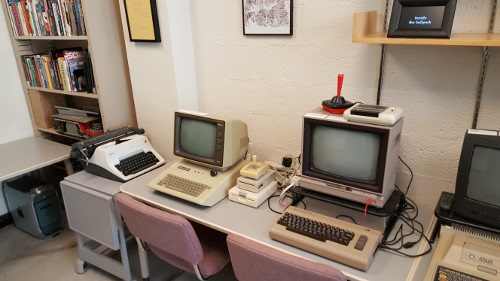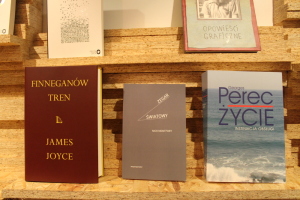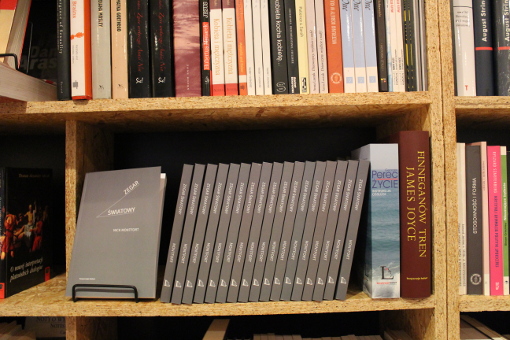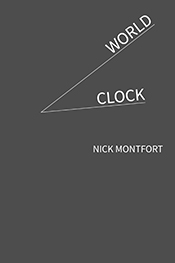Post Position 2024-11-05 13:15:05
I’m delighted that after more than four years of work by Lillian-Yvonne Bertram and myself — co-editors of this book — the MIT Press and Counterpath have jointly published

This anthology spans seven decades of computer-generated text, beginning before the term “artificial intelligence” was even coined. While not restricted to poetry, fiction, and other creative projects, it reveals the rich work that has been done by artists, poets, and other sorts of writers who have taken computing and code into their own hands. The anthology includes examples of powerful and principled rhetorical generation along with story generation systems based on cognitive research. There are examples of “real news” generation that has already been informing us — along with hoaxes and humor.











 This Monday (2014-04-28) Purple Blurb is proud to host a screening and discussion of narrative video art work done in collaboration with Roderick Coover, including The Last Volcano, Cats and Rats, Three Rails Live, and Toxicity. (The last two are combinatory pieces; Three Rails Live is a collaboration between Coover, Rettberg, and Nick Montfort.) These pieces deal with personal and global catastrophes and are written across languages, with one of the voices in Cats and Rats in (subtitled) Norwegian. They continue Rettberg’s work on novel-length electronic literature projects and his frequent collaboration with others.
This Monday (2014-04-28) Purple Blurb is proud to host a screening and discussion of narrative video art work done in collaboration with Roderick Coover, including The Last Volcano, Cats and Rats, Three Rails Live, and Toxicity. (The last two are combinatory pieces; Three Rails Live is a collaboration between Coover, Rettberg, and Nick Montfort.) These pieces deal with personal and global catastrophes and are written across languages, with one of the voices in Cats and Rats in (subtitled) Norwegian. They continue Rettberg’s work on novel-length electronic literature projects and his frequent collaboration with others.
